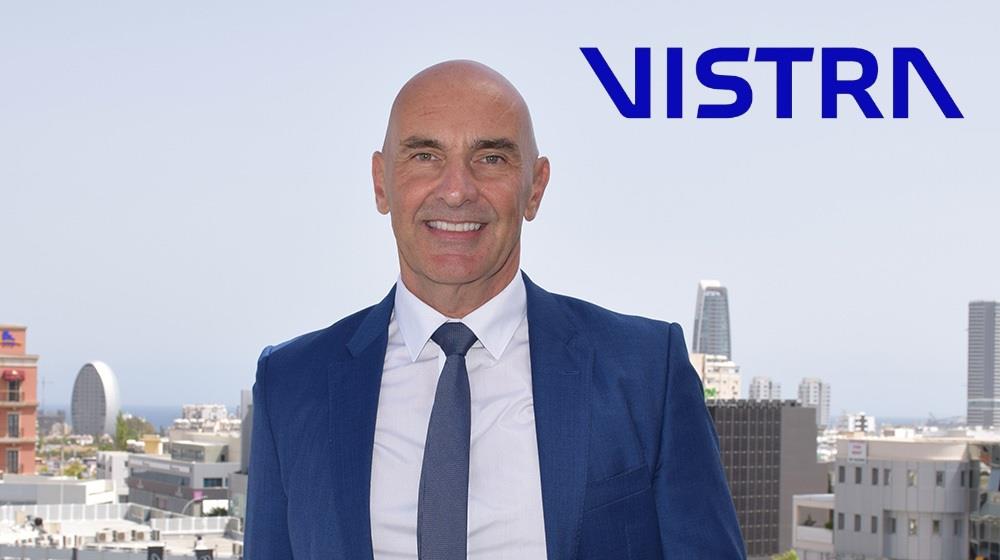Today, Limassol is more than luxury and leisure, explains Richard Melton, Executive Director of Vistra (Cyprus) Ltd.
With the city becoming a base for High Net Worth Individuals and international businesses, Melton explains its attractiveness, the fierce competition it faces and points to where the next wave of growth is coming from.
From fintech and funds to professional services, what does Limassol’s financial services landscape look like today? Which segments are leading the way and where do you see the next wave of growth coming from?
With Limassol continuing to attract an expanding ecosystem of payment providers and digital finance businesses, and as regulatory and tax complexity inevitably evolves, there is an increasing need for smart and effective professional support.
At Vistra Cyprus, while international asset-holding structures and fund administration remain core to our business, we’ve actively embraced Limassol’s tech boom. We provide support to software and fintech firms on tax structuring, serve corporates with expansion and payroll solutions across 50+ jurisdictions and guide entrepreneurs on private wealth and relocation planning.
Encouragingly, we’re also seeing growing interest from crypto-focused clients, drawn by Cyprus’ tax incentives and corporate stability, as well as regulatory certainty, thanks to the new Markets in Crypto-Assets (MiCA) framework.
Looking further ahead, while automation and digital transformation will continue to reshape the financial services landscape, displacing some traditional roles, face-to-face advisory will remain vital as clients continue to value relationship-driven expertise when fostering their ambitions.
Limassol is widely seen as the main base for High Net Worth Individuals (HNWIs) in Cyprus, with a luxury property market to match. What is it about the city that continues to attract this demographic?
Sun, sea and security remain central to Limassol’s appeal. Add a strong sense of community and a cosmopolitan lifestyle and it’s easy to see why the city continues to attract HNWIs. Limassol also offers a highly sought-after work-life balance, where a morning run along the beach can be followed by a high-level business meeting just minutes away and, before the day ends, with fine dining at one of its many exceptional restaurants.
Yet, today’s Limassol is about more than luxury and leisure. The city is actively cultivating a vibrant economy where entrepreneurs, creators and innovators connect, ultimately fuelling the city’s evolution into a hub of opportunity and forward-thinking business expertise.
When the UK changed its non-domicile rules, there was a sharp migration of HNWIs and their families to jurisdictions like the UAE, Italy and Switzerland. Did Cyprus miss a trick? And what would it take to make the country more competitive in this space?
Cyprus continues to offer tax certainty and flexibility for resident non-domiciled individuals – something that has been eroded in other jurisdictions, where rising property prices and wealth disparities have shifted public sentiment. Its 60-day residency rule also appeals to globally mobile individuals. Still, for many HNWIs, tax is only one part of the equation when choosing where to reside.
While greater public and private investment into education, sports and research infrastructure – or even hosting an international spotlight or sporting event – could help attract this demographic to Cyprus, other factors are just as critical. Year-round direct travel routes, top-tier healthcare, access to international banking and a vibrant cultural scene all play a role and Cyprus, as an island with finite financial resources, may struggle to compete with more established rivals and dynamic metropolitan centres on certain fronts, although proposed Schengen access is highly likely to boost its attractiveness.
More broadly, how are the needs and expectations of international businesses and HNWIs evolving? What are they asking for now that they weren’t five years ago?
Today’s internationally focused structures face mounting tax, regulatory and reporting pressures – whether claiming treaty benefits, meeting ESG requirements or operating digitally across the EU. The process has become increasingly costly and complex.
For HNWIs and their families, rising global mobility adds further complexity, requiring agile governance and seamless coordination across legal, tax and cultural boundaries. Success in this environment requires constant upskilling and a smart use of technology.
At Vistra, we’ve embraced this through tools like our digital entity management application, Global Expansion Platform (GEP) and Geni, our AI-powered compliance advisor, both of which help clients meet many of these rising demands and navigate cross-border complexities with speed and precision.
What are the biggest challenges facing firms and professionals in Limassol’s financial sector today?
Despite commendable credit ratings for domestic banking institutions, Cyprus’ financial services sector is constrained by the lack of a major international bank, which negatively affects its image as a global finance centre and can deter fund, corporate and private wealth clients. Other challenges are increasingly complex EU-wide anti-money-laundering regulations, heightened sanction risks and conservative risk thresholds, all of which prolong onboarding times.
These pressures are unlikely to ease as geopolitical tensions rise and sector talent remains stretched. Simultaneously, the tax landscape grows increasingly complex, with expanding compliance obligations such as transfer pricing, DAC reporting and the introduction of the OECD/EU Pillar Two minimal tax requirement for large multinationals. Firms of all sizes now face growing friction when seeking to meet tight deadlines, requiring not only advanced technical expertise but also significant investment in skilled personnel and technology solutions going forward.
Fast-forward five years What does a more globally competitive Limassol financial services industry look like?
Intelligent and targeted investment can continue Limassol’s evolution into a competitive regional – or global – hub where financial services, fintech and compliance-driven innovation converge. As tax incentives and lifestyle choices continue to attract overseas talent and entrepreneurs, investment in higher education and world-class research facilities is essential to further cultivate homegrown expertise. Perhaps tailoring tax incentives towards locally sourced talent could help reverse the concerning ‘brain drain’ and even lay the foundations for an extended era of domestic innovation and shared prosperity.
Ultimately, with the right thinking, Limassol – and Cyprus more broadly – can set itself apart, not only through its tax and operational advantages but as a strategically located, future-focused digitalised economy between Europe, the Middle East and beyond.
This interview first appeared in the June edition of GOLD magazine. Click here to view it.









